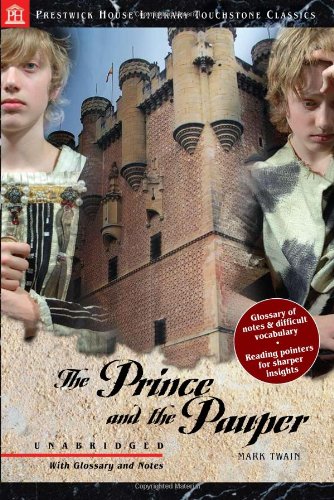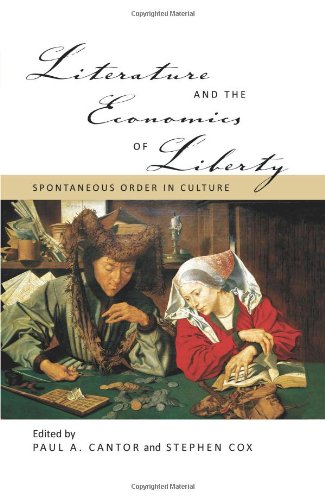Recently by Jeffrey A. Tucker: The Relentless Misery of 1.6Gallons
Part of the difficulty of understanding Mark Twain’s political outlook is due to terminology and the tendency of politics to corrupt the meaning of everything. As often as you see him called a liberal, he is called a conservative, and sometimes both in the same breath. Critics puzzle about how one person could be champion of workers, owners, and the capitalist rich, while holding views that are antigovernment on domestic matters, antislavery, and antiwar. They often conclude that his politics are incoherent.
Part of the reason for the confusion has to do with the changed meaning of liberalism as an ideology and the incapacity of modern critics to understand its 19th-century implications.
Twain was born as Samuel Langhorne Clemens in 1835, when the meaning of liberalism was less ambiguous. To be liberal was to favor free enterprise and property rights, oppose slavery, reject old-world caste systems, loathe war, be generally disposed toward free trade and cosmopolitanism, favor the social advance of women, favor technological progress — and to possess a grave skepticism toward government management of anything.
The tradition of thought extends from Enlightenment thinkers like Jefferson through 20th-century Misesians and Hayekians. This outlook on the world might be nearly extinguished from politics today (two flavors of statism), but it was the one embraced by Clemens.
By the time Clemens died in 1910, liberalism was on the verge of transformation. The Gilded Age of capitalist accumulation had come and gone, and inspired envy and ideological fanaticism all around. Liberalism’s progressive outlook led to sympathy for socialism and government management, and, later, to the war economy as a means of imposing economic regimentation in the absence of democratic consensus. A half century later, liberalism would have moved full swing toward the very opposite of its 19th-century meaning, while those who opposed government management and favored free enterprise were called conservatives.
It is for this reason that Twain’s political views are so frequently misunderstood, as the vast literature on his life and work easily demonstrates. Biographers and critics have had difficulty figuring out how the same person could champion the interests of Newport capitalist class while founding the Anti-Imperialist League. He loved America’s attachment to property and commerce but emerged as the country’s most severe critic of the warfare state (he said that the United States should make a special flag for the Philippines: "white stripes painted black and the stars replaced by the skull and cross-bones.")
Nearly alone in the Twain literature, Louis J. Budd’s pioneering work Mark Twain: Social Philosopher described his outlook as unambiguously liberal in the mold of the Manchester School of Cobden and Bright. "There is no good government at all & none possible," he quotes Clemens in summary of his creed.
 Mark Twain: Social Phi...
Best Price: $20.83
Buy New $16.85
(as of 11:12 UTC - Details)
Mark Twain: Social Phi...
Best Price: $20.83
Buy New $16.85
(as of 11:12 UTC - Details)
It is in the Budd book that we learn that Clemens was a great champion of technological progress and commerce, never worked up enthusiasm for welfarist measures, for society in the "business age" is governed by "exact and constant" laws that should not be "interfered with for the accommodation of any individual or political or religious faction."
The author of this study doesn’t use the term classical liberalism. Instead he called Clemens’s outlook a 19th-century, urban, middle-class liberalism. Indeed, Budd himself regrets Twain’s political and economic outlook. The author is even aghast that Twain acted as if "supply and demand was a fixed law rather than a debatable theory…"
When the book was reviewed in the Nineteenth-Century Fiction Guy A. Cardwell wrote,
by present standards Mark Twain was more conservative than liberal. He believed strongly in laissez faire, thought personal political rights secondary to property rights, admired self-made plutocrats, and advocated a leadership to be composed of men of wealth and brains. Among his attitudes now more readily recognized as liberal were a faith in progress through technology and a hostility towards monarchy, inherited aristocracy, the Roman Catholic church, and, in his later years, imperialism.
This review was written many decades ago, when liberals still had faith in technology. This too changed in time, so that now his faith in technology would probably be unclassifiable. His opposition to war would be similarly so, given how unpredictable antiwar feelings are among today’s liberals and conservatives.
The party of liberalism that Clemens embraced no longer has a comfortable home in the current age. This problem has led to a general confusion about his outlook on matters of political economy, and thus is his outlook generally disregarded as fuzzy and confused.
 The Prince and the Pau...
Best Price: $1.22
Buy New $5.95
(as of 03:30 UTC - Details)
The Prince and the Pau...
Best Price: $1.22
Buy New $5.95
(as of 03:30 UTC - Details)
Actually, the best way to dispel that impression is by reading Twain’s own work. A look at some of his most popular fiction demonstrates that Budd is precisely right: he was a Manchesterite, a liberal of the old school, which, in today’s terms, would probably cause him to be classified as a laissez-faire radical or libertarian. He clung to the Whiggism of his family and youth, felt a stronger draw toward Jefferson Davis than Lincoln (but famously and rightly deserted the centrally organized Confederate Army), and championed hard money. He later supported Cleveland in the presidential election of 1884, in part for his support of the gold standard.
Along with Twain’s classical liberalism came a strong antiwar position, one which was rooted in Lockean-style love of liberty and opposition to government, not a Leninist-style analysis of the imperialism of finance capitalism.
"Talking of patriotism what humbug it is," he wrote; "it is a word that always commemorates a robbery."
Further: "Patriotism is being carried to insane excess. I know men who do not love God because He is a foreigner."
He was an opponent of the Spanish-American War, believed that Filipinos who were harassing US troops were only fighting for their independence, and might have been the only American who publicly defended the Boxers in China as good patriots.
His general attitude toward political power can be summed up in his account of the transformation of Tom Canty in The Prince and the Pauper (1881). Tom was a pauper who finds himself required to act as a stand-in for the prince following an identity mix-up that began in a silly game of changing clothes. The entire story is meant to illustrate the essential artificiality of the caste system that distinguished the nobles from the peasants — a novel filled with bitter vitriol toward the state penal system and overweening police power of the English state.
 The Adventures of Tom ...
Best Price: $0.10
Buy New $9.99
(as of 04:45 UTC - Details)
The Adventures of Tom ...
Best Price: $0.10
Buy New $9.99
(as of 04:45 UTC - Details)
When Tom Canty comes to know the depredations of power from the inside, he is personally scandalized and sets about making humanitarian reforms. This is the part of Tom usually emphasized in the movie versions. But the original book adds an extra element of complexity, as if to illustrate the universal corruption that comes with power. The formerly sweet, charming, and humane Tom Canty undergoes a radical change once he has power at his disposal:
When we saw him last, royalty was just beginning to have a bright side for him. This bright side went on brightening more and more every day: in a very little while it was become almost all sunshine and delightfulness. He lost his fears; his misgivings faded out and died; his embarrassments departed, and gave place to an easy and confident bearing. He worked the whipping-boy mine to ever-increasing profit. He ordered my Lady Elizabeth and my Lady Jane Grey into his presence when he wanted to play or talk, and dismissed them when he was done with them, with the air of one familiarly accustomed to such performances. It no longer confused him to have these lofty personages kiss his hand at parting. He came to enjoy being conducted to bed in state at night, and dressed with intricate and solemn ceremony in the morning. It came to be a proud pleasure to march to dinner attended by a glittering procession of officers of state and gentlemen-at-arms; insomuch, indeed, that he doubled his guard of gentlemen-at-arms, and made them a hundred. He liked to hear the bugles sounding down the long corridors, and the distant voices responding, "Way for the King!"
He even learned to enjoy sitting in throned state in council, and seeming to be something more than the Lord Protector’s mouthpiece. He liked to receive great ambassadors and their gorgeous trains, and listen to the affectionate messages they brought from illustrious monarchs who called him brother… He enjoyed his splendid clothes, and ordered more: he found his four hundred servants too few for his proper grandeur, and trebled them. The adulation of salaaming courtiers came to be sweet music to his ears….
Later, as part of the coronation parade, we are told that "Tom Canty gazed abroad over the surging sea of eager faces, and his heart swelled with exultation; and he felt that the one thing worth living for in this world was to be a king, and a nation’s idol."
 Literature and the Eco...
Best Price: $12.36
Buy New $18.18
(as of 10:15 UTC - Details)
Literature and the Eco...
Best Price: $12.36
Buy New $18.18
(as of 10:15 UTC - Details)
Thus do we see a vivid illustration of the central theme of classical liberalism, that power corrupts. It even corrupts the reformer and those who intend to use their power on behalf of liberty, as indeed Tom Canty had during the early stages of his reign. It is the office and the institution that do this to even the best people, and this power in the hands of bad people can unleash every manner of evil and call it good.
Another central theme of the old classical liberal school was its confidence in the ability of society to manage by itself and the futility of attempting to use the state apparatus as a mechanism for overriding the preferences of individuals. This confidence in the ability of individuals to govern themselves stemmed from an understanding of the creative power of mutual exchange in the absence of the state and the violence against person and property unleashed by its presence.
This theme is returned to again and again in the course of the narrative in both The Adventures of Tom Sawyer and The Adventures of Huckleberry Finn, two great American novels in which the state is conspicuous for its sheer absence. Indeed, this is part of the great charm and enduring power of these two novels: they describe the affairs of a society that is in evolution apart from the state. The state has only one role in the novels and it is entirely negative: it makes and enforces the fugitive slave laws. It is this fact alone that turns Huckleberry and Jim into outlaws fleeing down the Mississippi to find freedom.
What critics have called the mere sentimentalism of the close relationship between the slave Jim, Tom, and Huck, can be more readily understood as an archetype of the kind of social relations that emerge in the condition of freedom. Their relationship is not characterized by one of conflict, as people on the Left and Right might have it, but rather on humane and mutual respect for each other as individual human beings. This was Clemens’s essentially liberal vision of the capacity that people have for developing friendships apart from the coercion of the state.
Jeffrey Tucker [send him mail] is editorial vice president of www.Mises.org.




